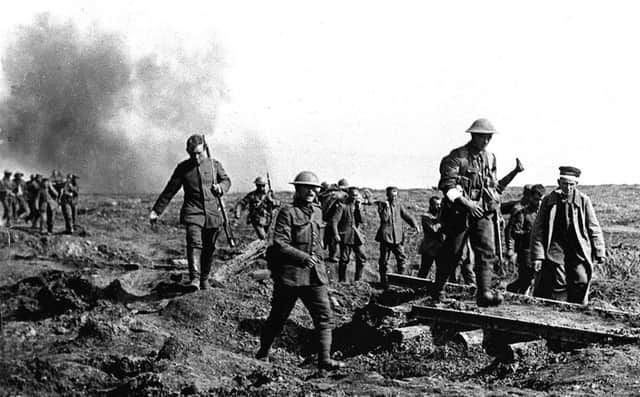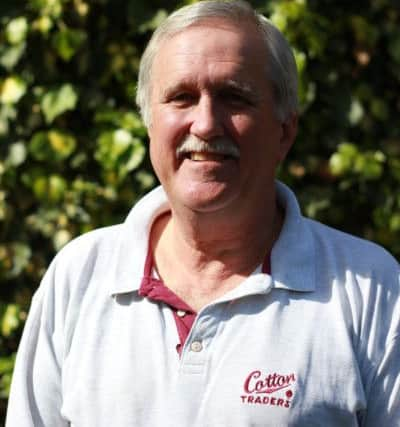He saw his best friend from Sunderland die - and had to re-live it all in a letter


Historian Keith Gregson has long been a contributor to Wearside Echoes and has unearthed another example of a local man to die in battle.
Sunderland Rugby Club scrum-half Billy Barker died in March 1918. It fell on the shoulders of his best friend Charles Herbert – himself a sportsman as he was a Sunderland hockey player – to describe Billy’s death to his colonel.


Advertisement
Hide AdAdvertisement
Hide AdKeith described it as a “tragic and moving letter” and he discovered it in Billy’s officer’s file in The National Archives.
It read: “This is the most difficult letter I have ever written, and in it I want to tell you how old Billy was killed.
“All went well until the 24th when Billy was given a most difficult flank to hold, in front of Clery sur Somme. We had hard hand-to-hand fighting with the enemy and although in vastly superior number and with vastly superior effectives, ‘C’ coy beat him off and held him off until the fight had gone on for two and a half hours.
“Then after a perfect shoal of cylindrical stick bombs he drove us back by sheer weight of numbers. Billy and one of his officers were killed instantaneously by one of the bombs.”
Advertisement
Hide AdAdvertisement
Hide AdKeith, historian and archivist for Ashbrooke Sports Club, said: “I have managed to find the war records of over 250 club members.
“At the time of the war, the club was known as Sunderland Cricket and Football Club and was the town’s home to rugby, cricket, hockey, tennis and bowls.
“Over a hundred of those who joined up became army officers and have left full and fascinating records in The National Archives”.
Charles’s letter is one of many similarly tragic letters and documents uncovered by Keith during his researches, but this one has special meaning.
Advertisement
Hide AdAdvertisement
Hide AdKeith explained: “Despite Charles’ letter of April it wasn’t until a hundred years ago this week – on October 19, 1918 – that the War Office acknowledged that Billy was dead.
“The reasons for such an action are complex but basically most of those who were with Billy at the time of his death were either killed themselves or became prisoners of war.
“The file even contains witness reports from returning prisoners who later confirmed that Billy was no more.”
One returning prisoner wrote: “I saw him lying dead in the trench at Peronne March 24. We had to pass the trench in which he was lying.”
Advertisement
Hide AdAdvertisement
Hide AdSoon after Billy’s death, a wounded soldier confirmed his demise, but the War Office researcher couldn’t find him when sent out to The Front in May.
By the time Billy’s father was able to bring Charles’ letter to the notice of the War Office, Charles too was missing.
By August, officials were still unwilling to accept that Billy had been killed.
“The suffering of the Barker family is hard to imagine,” Keith affirms. “Two of their sons were already dead. One was gassed in 1915 and invalided out only to die in 1917 as a result of weak lungs.
“Another brother was killed in action days after Billy.”
Advertisement
Hide AdAdvertisement
Hide AdCharles’s death was accepted as May 27, 1918, soon after he was registered missing. He was an acting captain in the 15th DLI where Billy also served.
Charles had already been wounded and awarded a Military Cross for bravery in the field. His father Ralph, a timber merchant, was already seriously ill when news of his son’s death arrived and died himself a few days later.
Keith will be marking the end of the war with his online publication ‘Can You Do Nothing To Mend My Broken Heart – The Ashbrooke Boys – A Sports Club at War (1914-18)’.
The download cost of £10 will be evenly divided between two club charities – the John Drummond Trust and The Last Stand.
Details will appear on Keith’s website towards the end of October.